"Para corroborar nossa afirmação alegamos que se todos houvessem perseverado igualmente nas tradições dos Apóstolos, os franc (latinos) não empregariam pão azimo e os roumi (gregos) pão fermentado, pois os apóstolos não podem ter ensinado as duas coisas. Portanto, os latinos (franc) mudaram tradição dos antigos e não os orientais." Mar Odeisho de Nishevam in marganitha IV
02) Igreja apostólica copta:
"Tradition is every teaching, other than the words of the Holy
Bible, that was entrusted to us, by the Apostles and the Fathers.
This teaching constitutes subjects that might not be included in
the Holy Bible but in no way contradict it.
Our Protestant brethren do not believe in Tradition. They
only abide by the Holy Bible. In this way they exclude the
heritage which the Church received from the previous
generations: the writings of the Apostles and Fathers of the
Church, the decisions of the holy councils, the Church Canons
and regulations, the Church rituals and the oral Tradition." tais as palavras do Patriarca alexandrino Shenouda III in "Teologia comparativa" I,01
Bible, that was entrusted to us, by the Apostles and the Fathers.
This teaching constitutes subjects that might not be included in
the Holy Bible but in no way contradict it.
Our Protestant brethren do not believe in Tradition. They
only abide by the Holy Bible. In this way they exclude the
heritage which the Church received from the previous
generations: the writings of the Apostles and Fathers of the
Church, the decisions of the holy councils, the Church Canons
and regulations, the Church rituals and the oral Tradition." tais as palavras do Patriarca alexandrino Shenouda III in "Teologia comparativa" I,01
03) Igreja apostólica armênia:
"Tudo isto pode parecer exótico e estranho para alguns, convem lembrar todavia que a igreja armênia nada inventou de novo, ela limitou-se a manter os costumes da igreja apostólica. Até o século V a Cristandade como um todo observou todas as tradições que acabamos de enumerar." Khazinedjian iden pp 50
04) Igreja apostólica siríaca:
"Tradition is, basically, the spiritual teaching we have inherited from the holy apostles and church fathers. Tradition is divine, apostolic or patriarchal.
Divine tradition is that teaching given over by Jesus Christ directly and by word of mouth to the Holy apostles. It was not recorded in a book until later through the inspiration and guidance of the Holy Spirit1. It includes the New Testament and the truths of faith.
Apostolic tradition, on the other hand, includes the teachings of the apostles, their laws and the messages they handed down to their disciples and their immediate successors orally. What has been handed down is based on the divine tradition from which apostolic tradition derives its power. These teachings and this legacy, although not written in the Holy Scripture, yet they conform to its teachings. They never contradict with them and are considered to be the faithful testimony to the authenticity and true interpretation of the Divine proclamation, better yet, an aid to its understanding.
Apostolic tradition includes constitutions of faith which are derived from God and established by the apostles; it also includes the seven church Sacraments, enacted laws and liturgies they set up for the church such as the Holy Mass.
Patriarchal tradition, however, is what the Holy church has received ever since the dawn of its history from its holy Fathers. It includes noble teachings based on the teachings of the holy apostles with respect to the interpretation of doctrines; exegesis of the Holy Scripture, organization of religious rites and enactment of laws especially decisions taken by the holy synods and works of some church fathers, such as patriarch Kiryakos (+817) and laws enacted by them…." Patriarca Zacarias Iwas in "The tradition"
Divine tradition is that teaching given over by Jesus Christ directly and by word of mouth to the Holy apostles. It was not recorded in a book until later through the inspiration and guidance of the Holy Spirit1. It includes the New Testament and the truths of faith.
Apostolic tradition, on the other hand, includes the teachings of the apostles, their laws and the messages they handed down to their disciples and their immediate successors orally. What has been handed down is based on the divine tradition from which apostolic tradition derives its power. These teachings and this legacy, although not written in the Holy Scripture, yet they conform to its teachings. They never contradict with them and are considered to be the faithful testimony to the authenticity and true interpretation of the Divine proclamation, better yet, an aid to its understanding.
Apostolic tradition includes constitutions of faith which are derived from God and established by the apostles; it also includes the seven church Sacraments, enacted laws and liturgies they set up for the church such as the Holy Mass.
Patriarchal tradition, however, is what the Holy church has received ever since the dawn of its history from its holy Fathers. It includes noble teachings based on the teachings of the holy apostles with respect to the interpretation of doctrines; exegesis of the Holy Scripture, organization of religious rites and enactment of laws especially decisions taken by the holy synods and works of some church fathers, such as patriarch Kiryakos (+817) and laws enacted by them…." Patriarca Zacarias Iwas in "The tradition"
05) Igrejas apostólicas bizantinas:
"De que modo a divina revelação comunicada aos homens tem sido conservada pela igreja de Deus? Por dois veículos: sagrada tradição e sagrada escritura." Mt Platon "Orthodox Catechism"
06) Igreja apóstolica de Inglaterra:
"Nós não só admitimos as tradições orais em geral, como uma excelente introdução a doutrina da verdade e como singular apoio no que diz respeito a exposição do sentido das Escrituras, mas também as tradições particulares não escritas que nos foram legadas pelos beatíssimos apóstolos e recebemos o testemunho da igreja primitiva como iniciação ao conhecimento da palavra escrita." Arcebispo Bramhall
"St. Augustine is cited to say, ' Non invenimus in litteris Novi Testament! evidenter prseceptum,' of this or any other certain days of necessary fasting; and hereupon, as St. Basil of another matter spake, ' they clamour, and call for demonstrations from written testimonies, and send away with disgrace, as nothing worth, the unwritten witness of the Fathers." And again; ' But they cease not up and down clamouring, that this is not witnessed in any written word of God.' Yet. . . St. Augustine would never hare allowed them so to abuse his words; as shall now appear. This holy Father thus writeth, speaking of a certain custom of the Church; ' Which custom I believe to have come from tradition of the Apostles; as many things, which are not found in their writings, nor in the Councils of following times, and yet, because they are observed through the Church universal, are believed to have been by them delivered and commended:' for,' that custom, which even then men looking back upward did not observe to have been instituted by any following ages, is most rightly believed to have been a tradition delivered by the Apostles.' And in another place; ' Those things which we keep, being not written but handed down by tradition, such at least as are observed throughout the whole world, we must understand to be retained as commanded and appointed either from the Apostles themselves, or from plenary'(i.e. OZcumenical)'Councils, whose authority in the Church is most wholesome; as for example, that the passion of the Lord, and His resurrection, and ascension, are celebrated by anniversary solemnities." Again, to learn that St. Augustine thought some things may be 'non evidenter prsecepta ab Apostolis,' (i. e. not evidently commanded by the Apostles,) nor yet in their writings at all commanded, and yet really comNOTE manded by the Apostles, and rightly so believed, see his words ; ' Apostoli
' &c.' ' The Apostles indeed commanded nothing in this matter ; but that
custom is to be believed to have taken its beginning from their tradition: as there are many things, which the universal Church observes, and which for this cause are rightly believed to have been commanded by the Apostles, although they be not found written.' Here you see 'commanded by them,' and 'not commanded by them,' in several senses: therefore his expression elsewhere, ' non evidenter praeceptum,' is by himself reconciled here to himself in the many other testimonies above produced. Upon these grounds therefore St. Augustine elsewhere pronounces, that ' to dispute against that which the universal Church observesinsolentissimte est insania:.' St. Basil perfectly agrees hereto: ' But this also is Apostolical; Hold fast the traditions which ye have received, whether by word or by Epistle: of which latter this present is one; which they who from the beginning did constitute or appoint it, delivered to those that followed after, and so, as the usage proceeded on ever with time, rooted it firmly by long custom in the Churches.' The same Father tells us of certain things received in the Church ' by a silent and mystical or secret tradition ;' and gives us instances,' And the rest of the ceremonies at Baptism, the renunciation of Satan and his angels ? from what Scripture are they taken/'' Add to these Leo the Great, of near time to St. Augustine,' It is not to be doubted, O most beloved, but that each Christian observance' (i.e. of the Christian Church generally) 'hath been taught of God; and whatever hath been received by the Church into the practice of her devotion, doth derive itself from tradition Apostolical, and from the teaching of the Holy Spirit.' And lastly, Fulgentius Ferrandus, the Deacon, of the next age: ' Let every one, who glorieth that he belongs unto the Church, live by the laws of the Church, especially those, which antiquity hath confirmed. Whence also custom without a law, which yet the tradition of the holy Church' (i.e. universal) ' hath delivered to be observed by posterity for ever, seems to have a claim to be observed with the same reverence, and in no way to be set aside, when it is not contrary to the true faith.' .... It were easy to add numerous testimonies from St. Jerome, Epiphanius, Tertullian, Chrysostom, and others ; but these are sufficient. Only be it here well noted, that neither St. Augustine, St. Basil, Leo, Ferrandus, or others, here do speak of matters of faith, or of essential moral duties, or of the essence of Sacraments; all which we are taught indeed by the consent of these same Fathers to be contained expressly in the holy Scriptures ; and so their testimonies in that behalf are reconcileable with these; but of ritual observances; which being visible, and as it were legible, in the universal Church's constant practice, needed not to be set down in her written rule, or those which are therein set down, not necessarily so evidently, but that they might need the interpretation of such the Church's practice." B V Gunning in "The lent fast" Oxford ed. p. 100.









































































































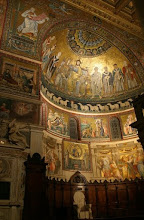
































































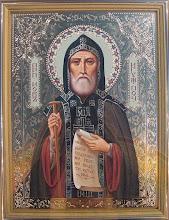




















































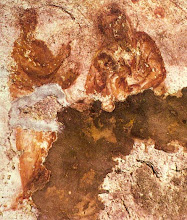

































































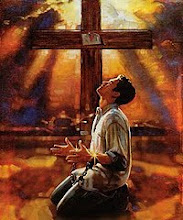






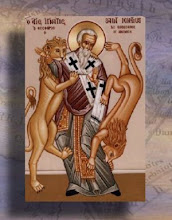



























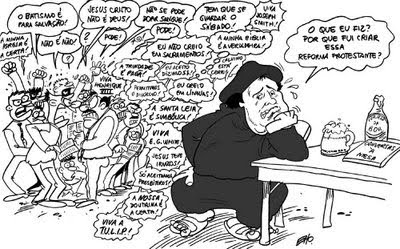



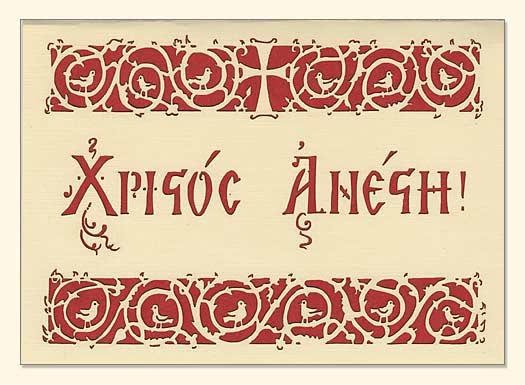












Nenhum comentário:
Postar um comentário